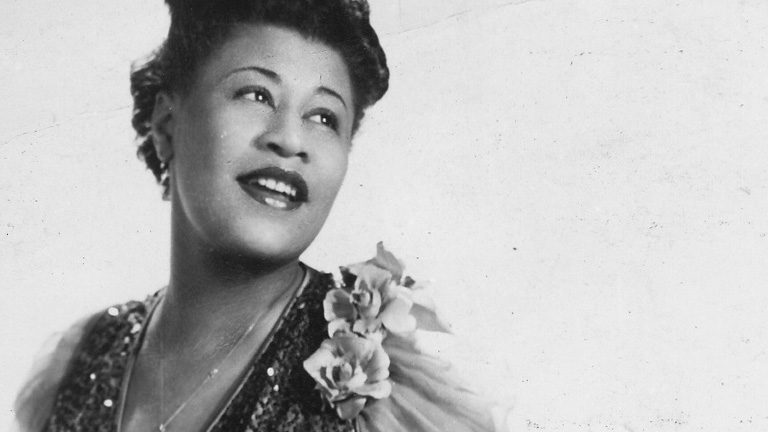January saw some extraordinary demonstrations of female power, with various women’s marches taking place across the globe. At a time when Donald Trump, a man who has shown little respect for women or our rights, has become ‘leader of the free world’, it’s important now more than ever to remember the women who fought before us. For centuries women have fought to have their voices heard and change the perception of what it is to be a ‘woman’. Music became a gateway for women to explore their sexuality and challenge notions of patriarchy.
Some of the earliest examples of women who had a profound influence on the music industry are female jazz singers of the 20th century. A woman’s place, and particularly a black woman’s place, was strictly subordinate in this society and a career was still virtually unheard of. In addition to this, many of the most successful of these women came from incredibly underprivileged backgrounds. Ella Fitzgerald was from one of the poorest neighbourhoods in New York and spent time in an orphanage and on the streets. In spite of her incredibly challenging beginnings, she would become one of the most influential women in the history of the music industry. Women were finally recognised as more than a pretty picture, but as real, talented musicians. Their voices were powerful and sexy, breaking the stereotype of what a woman should sound like. These women demanded attention and respect, yet many of them still experienced sexism and abuse in their personal lives: a sad fact of the era they lived in.
Later in the century came a new wave of rebellion. In the 1970s, aggressive, unapologetic and loud, punk rock fit right into the male dominion. When we think of punk our minds turn pretty quickly to Sid Vicious, Paul Weller or Joe Strummer, but we shouldn’t forget the women who were so integral to this movement. Women like Viv Albertine rejected stereotypes and took control of their careers and their lives. They revolutionised womanhood. Punk was all about breaking boundaries, and who had more boundaries to break than women? Like those of the jazz era, these women weren’t about to let any personal situation get in the way of their career. Chrissie Hynde put it brilliantly when she said “I was a single mum with two kids. What else was I going to do? It was either be in a band or be a waitress.” They were inspirational without trying to be. They created female role models in the male-dominated world of rock and roll.
Nowadays, it’s easy two find these role models in the alternative movement, with inspirational women like Haim, whose music expresses a modern femininity or Lauren Mayberry of Chvrches, who is openly outspoken about her feminist activism. However, with artists like Haim, Lauran Mayberry and Ellie Rowsell. leader singer of Wolf Alice, shattering traditional ideas of femininity by redefining the image of what it means to be a front (wo)man, we are seeing a shunning of female stereotypes specifically within the alternative music scene.
However, within the mainstream, it feels like we’ve taken a step backwards. When Madonna started dressing in an overtly sexual way, it was because it was controversial, thus making a statement about the restrictive nature between femininity, sexuality and, particularly, age. It currently seems as though bikini-clad female popstars rolling around in sand is the easiest way to guarantee high view ratings on YouTube.
Female empowerment has become a buzzword, but these videos don’t feel empowering. Little Mix might throw a few insults at their exes but, in many of their videos, it feels like we’re waiting for the overtly-sexualised slutty pillow fight to start. Taylor Swift may claim to be a great role model, but the majority of her songs are about men, leading us to believe that the legitimacy of female happiness is based on the stability of our relationships with men. Maybe we need a Bechdel Test for pop songs to help us figure out whether we are supposed to feel empowered or not.
Where are the rule breakers? Where are the women telling you to fuck the patriarchy, stop starving yourself and reminding you that you’re defined by your brain, not your boyfriend? Nowadays in the mainstream music scene, they seem few and far between. So, I suppose, for now we’ll have to focus on remembering the ground-breaking women of decades before us as we wait for the next wave of female revolutionaries.
Katie O’Kelly
(Image: Biography)

